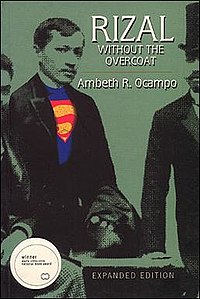What do you think?
Rate this book


272 pages, Paperback
First published January 1, 1990
"Jose Rizal Mercado y Alonso (1861-96) is the Philippine national hero because an American governor gave him that recognition. President Taft did not choose Aguinaldo because he was too militaristic; Rizal fitted the ideal of national leader for the Filipinos. (Arcilla 1984:88)"